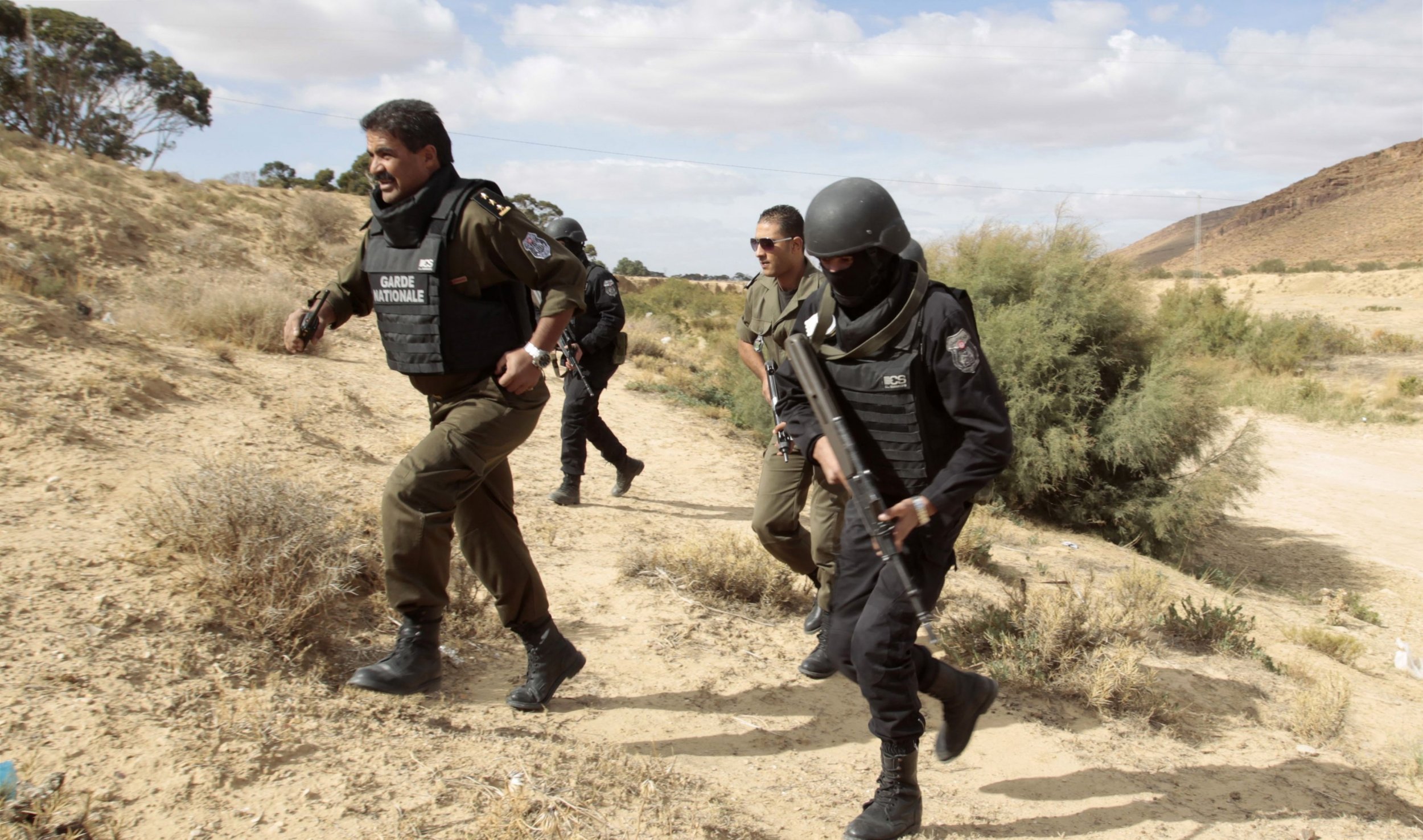
The shocking terror attack on Tunisia's national museum earlier this week which left 24 people, mostly tourists, dead has shone a light on extremism in the North African country. ISIS has claimed responsibility for the attack at the heart of the capital, Tunis, but the root of extremism in the country is situated not in the eastern coastal regions, but in the ungoverned western borderlands surrounding the Jebel Chaambi, Tunisia's biggest mountain.
Although as yet no link has been established between the lawless Jebel Chaambi area and the attack in Tunis, this mountainous region, which stretches across the border with Algeria, is host to Kasserine Governorate, where a number of jihadi groups such as the al-Qaeda-linked Uqba ibn Nafi Brigade and Ansar al-Sharia are based. The Uqba ibn Nafi Brigade, believed to consist of Tunisians, Algerians and Libyans, released a statement last year in which the group threatened to carry out an attack on Tunis.
In the last couple of years, these radical elements have started carrying out attacks on both security and tourism targets, travelling into urbanised areas on the coast. For example, in October 2013, militants launched an attack on a hotel in the Mediterranean resort of Sousse, with a suicide bomber detonating his device on the beach. Another suicide attack was foiled in the eastern city of Monastir.
According to figures released by the UK-based International Centre for the Study of Radicalisation and Political Violence (ICSR) earlier this year, the number of Tunisians who had travelled to join radical extremist groups in Iraq and Syria was higher than any other country, with as many as 3,000 making the journey. This has led the Tunisian government to express concerns about returning jihadis and the threat they pose to national security.
Since the heightened terror threat caused by this hive of extremism from 2012 onwards, the Tunisian military has launched a number of counter-terror operations, involving ground forces, helicopters and airstrikes in an attempt to contain the threat of extremism emanating from the area.
Last month, approximately 100 suspected radical Islamists were arrested around the country for plotting attacks on major Tunisian cities in a counter-terror sweep. In another attack last July, between 40 and 60 militants killed 15 soldiers in Kasserine, forcing the government into another major counter-terror raid of 63 suspected militants in the regions of El Kef, Sidi Bouzid and Kasserine.
However, their attempts have largely failed, notes Michael Horowitz, senior analyst at the geopolitical risk consultancy Max Security Solutions.
"The problem is that the threat is constantly expanding. Tunisia doesn't have the means to fight it. You have so many people coming back from Syria and Iraq, likely via Libya. The security services cannot cope with the number of fighters coming back.".
The root cause of this extremist hub in the Jebel Chaambi region is primarily economic. Ninety-two percent of Tunisia's industrial production is concentrated in three coastal urban areas: Tunis, Sousse and Sfax. This has left the country's western regions - such as Kasserine - and their inhabitants, economically deprived.
Dr Stefano Torelli, an expert on Tunisian jihadism and research fellow at the Institute for International Studies (ISPI), says that Kasserine has become "an informal headquarters" for the jihadi movement in Tunisia because of its proximity to the porous Algerian border and because of the hardship faced by those who live there.
He adds that there is also an informal "alliance between the two criminal activities" of jihadism and trafficking. These conditions underpin criminal activities in the region, with trafficking of contraband such as cars, cigarettes, oil and arms rife.
"Kasserine is the first city near to the area of Jebel Chaambi," he says. "Another reason is socio-economic. Kasserine is one of the poorest cities and poorest areas in Tunisia. Tunisia is a country split in two, the east coast is more developed area than the west. Kasserine, in some ways, represents this situation."
The impoverishment of Kasserine's citizens is demonstrated by the fact that unemployment in the city is approximately two times higher than the national average. "Unemployment in Tunisia is about 17% now, in Kasserine it was 30% in 2012, for example," Torelli notes.
Tarek Kahlaoui, former adviser to Tunisian President Moncef Marzouki and director of the Tunisian Institute of Strategic Studies, says it is "not just by chance that the Tunisian revolution [in 2011] started in these border regions" specifically because of the economic disparity with Tunisia's coastal areas.
He reveals that, when analysing the Salafi jihadists in prison in Tunisia, "there is a clear connection between social marginalisation and this phenomenon [of extremism]" in the poorer regions of Tunisia, such as Kasserine.
"When we looked at who was in prison, we saw that most of the Salafi jihadists are 18 to 30 years old, most of them did not go to college and most of them are from impoverished provinces," he adds. "Not only from these impoverished provinces but also from the poorest neighbourhoods of the capital, Tunis, of Sousse, of the main Tunisian cities."
Tourism is a crucial industry for the Tunisian economy, employing more than 400,000 people, but the effects of the gun attack in Tunis are likely to be felt all along the country's Mediterranean coastline despite a defiant online solidarity campaign entitled 'I will go to Tunisia' by social media users pledging to ignore the heightened terror threat and travel to the country.
Uncommon Knowledge
Newsweek is committed to challenging conventional wisdom and finding connections in the search for common ground.
Newsweek is committed to challenging conventional wisdom and finding connections in the search for common ground.
About the writer
Jack is International Security and Terrorism Correspondent for Newsweek.
Email: j.moore@newsweek.com
Encrypted email: jfxm@protonmail.com
Available on Whatsapp, Signal, Wickr, Telegram, Viber.
Twitter: @JFXM
Instagram: Read more
To read how Newsweek uses AI as a newsroom tool, Click here.








